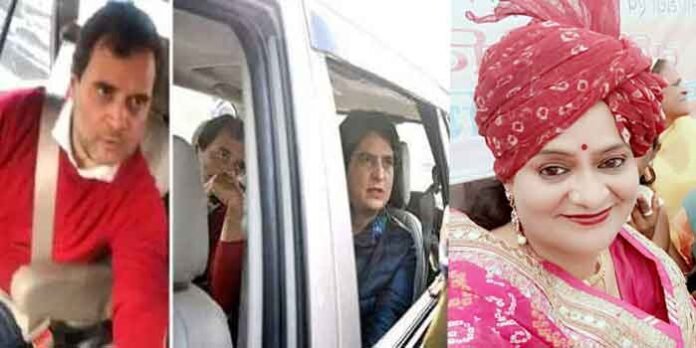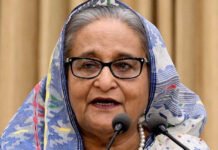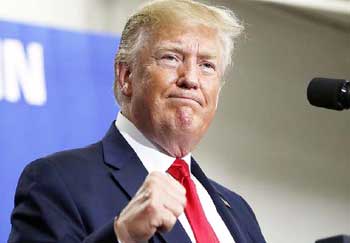INVC NEWS
New Delhi : A significant controversy has erupted in Madhya Pradesh following a controversial social media post allegedly made by Amita Singh Tomar, the Tehsildar of Kumbhraj in Guna district. The post, which targeted Congress leaders Priyanka Gandhi Vadra and Rahul Gandhi, has sparked outrage and political turmoil, with state Congress leaders demanding accountability and questioning the impartiality of government officials.
The Content of the Controversial Post
The social media post in question, allegedly shared from the Facebook account of Tehsildar Amita Singh Tomar, contained provocative and defamatory remarks about Priyanka Gandhi Vadra and Rahul Gandhi. The post accused Priyanka Gandhi of drinking alcohol in London while hiding her face with a mask, further insinuating that she avoids accountability and justice. The post also targeted Rahul Gandhi and the Vadra family, labeling them with derogatory names and making incendiary claims about their lifestyle and political aspirations.
The language of the post was particularly inflammatory, accusing the Gandhis of being disrespectful to Hindus and manipulating the population for decades. The post suggested that the family’s influence was a “trap” from which the country has been unable to escape for 70 years. Such statements have not only ignited public outrage but have also raised concerns about the political leanings and conduct of a government official.
Congress’s Outrage and Response
The Congress party, particularly in Madhya Pradesh, has reacted strongly to the post. State Congress spokesperson KK Mishra took to social media to condemn the remarks, questioning the appropriateness of such statements coming from a bureaucrat. In his post on X (formerly Twitter), Mishra pointedly criticized Amita Singh Tomar, labeling her as mentally malnourished and unfit for her position.
Mishra’s response highlighted the gravity of the situation by pointing out that Tomar is a government official, tasked with serving the public impartially. He emphasized that her role does not grant her the authority to make such politically charged and disrespectful remarks. Mishra also sarcastically advised Tomar to stay within her professional boundaries, reminding her that she is a ‘servant’ of the people, not a political ‘Shah’.
Tehsildar Amita Singh Tomar’s Defense
In the wake of the backlash, Amita Singh Tomar has vehemently denied any involvement in the post. She claimed that her mobile phone was not in her possession at the time the post was made, as it was being used by her staff for tasks related to the ongoing Revenue Maha Abhiyan 2.0. Tomar stated that she only became aware of the post when it was brought to her attention by others, at which point she checked her social media account and found no trace of the controversial post.
Tomar further defended herself by suggesting that her social media account may have been hacked, citing a previous incident in Sheopur where her phone was compromised. She mentioned that she had lodged an FIR in that case, implying that a similar situation might have occurred in this instance. Despite her claims, the post was reportedly deleted shortly after it gained attention, leaving many questions unanswered.
Implications of the Incident
This incident has significant implications, not just for the individuals involved, but for the broader political and administrative landscape in Madhya Pradesh. The controversy has raised critical questions about the impartiality of government officials, especially those in positions of authority like Tehsildars, who are expected to maintain a neutral stance in political matters.
The incident also underscores the potential risks associated with the misuse of social media by public officials. In an era where social media posts can go viral within minutes, the lines between personal opinions and professional responsibilities can easily blur, leading to serious repercussions. This case highlights the need for clear guidelines and perhaps stricter regulations regarding the social media activity of government employees.
The Broader Political Context
This controversy did not occur in a vacuum; it is part of the larger political tension that exists between the ruling party in Madhya Pradesh and the Congress party. In recent years, the political environment in the state has been highly charged, with frequent clashes between the two major parties. The post by Amita Singh Tomar, whether it was genuinely her doing or the result of a hack, has added fuel to the fire, further polarizing the already tense atmosphere.
The Congress party, which has been on the defensive in Madhya Pradesh, is likely to use this incident to rally its supporters and criticize the state government. By highlighting the alleged bias and unprofessionalism of a government official, the Congress can position itself as the victim of an unfair system, potentially gaining sympathy and support from the electorate.
Public Reaction and Media Coverage
The incident has garnered widespread media attention, with news outlets across the country covering the story. Public reaction has been mixed, with some expressing outrage at the alleged misconduct of a government official, while others are skeptical of the claims made by the Congress party. Social media platforms have seen a flurry of activity, with hashtags related to the controversy trending as people debate the merits of the case.
The story has also sparked discussions about the role of social media in politics and governance. As more officials and politicians use social media to communicate directly with the public, the potential for controversies like this one is likely to increase. This incident serves as a reminder of the power and pitfalls of social media in the modern political landscape.
What Lies Ahead?
As the controversy continues to unfold, it remains to be seen what the long-term consequences will be for Amita Singh Tomar, the Congress party, and the Madhya Pradesh government. An investigation into the hacking claims may be necessary to determine the true origin of the post. Depending on the findings, there could be disciplinary actions against Tomar or further political fallout for the state administration.
For the Congress party, this incident provides an opportunity to challenge the state government and push for greater accountability and transparency from its officials. Whether this controversy will translate into political gains for the Congress remains uncertain, but it has undoubtedly added a new dimension to the political discourse in Madhya Pradesh.
Controversy surrounding
The controversy surrounding the social media post by Madhya Pradesh Tehsildar Amita Singh Tomar has highlighted the complex and often contentious relationship between politics and bureaucracy in India. As the situation develops, it will be crucial to monitor the responses from both the government and the Congress party, as well as the impact on public perception. This incident serves as a stark reminder of the responsibilities that come with public office and the potential consequences of overstepping professional boundaries.
















